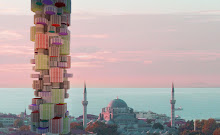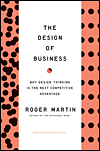While in New York this past November, I visited the Asia Society to take a look at their current exhibitions and was fortunately introduced to the art of Zhang Huan, a contemporary Chinese artist who now makes his home in New York City.
While I can't say that I completely understood all of his art, or the exact message he was hoping to convey in some of his performance pieces, I found his work nevertheless, extremely powerful and thought-provoking. His statements, whether they be political, social or cultural were very potent.
The following text is taken from the website of the Asia Society:Zhang Huan is one of the leading artists if the Chinese new wave art movement that emerged in China in the 1980s and 1990s and combined avant-garde practices with new internationalism. Zhang Huan (born 1965, Henan Province, China) began his career as a performance artist, using his body to create unique responses to specific environments; he has since moved on to photography, video, sculpture and installation. He wide-ranging career has spanned over 13 years, during which time he has lived in three cities - Beijing, New York and Shanghai.
Zhang Huan
The following text is taken from the website of the Asia Society:
This sculpture of the hand was created in reaction to a visit Zhang Huan made to Tibet where he observed that the arms and legs of Tibetan sculptures were destroyed during the Cultural Revolution.
The following text is by Eleanor Heartney, "Zhang Huan: Altered States", published by Charta and Asia Society, 2007:
The paradox of Zhang Huan ’s work is its marriage of violence, self-inflicted pain, and physical transgression with a Buddhist-inspired quest for peace and enlightenment. This is body art of a specifically Asian variety, in which oppositions dissolve, mind and spirit meld, and inside becomes inseparable from outside. Through acts centered on his own sensate and often suffering body, Zhang Huan hopes to bridge the gap, not just between mind and spirit or nature and culture, but also between individuals and societies. He remarks, “I often get the impression that people do not understand who they are nor do they know what leads them to act as they do. But in the end we are all equal. We all love life and fear death.”

































No comments:
Post a Comment